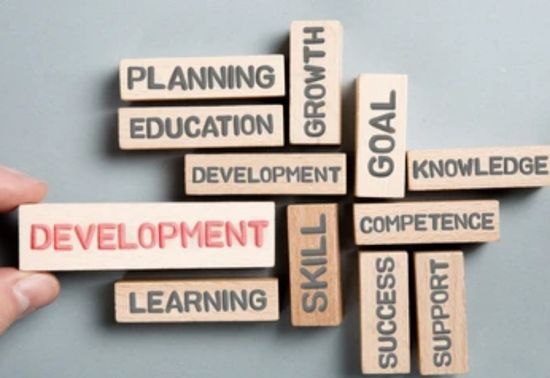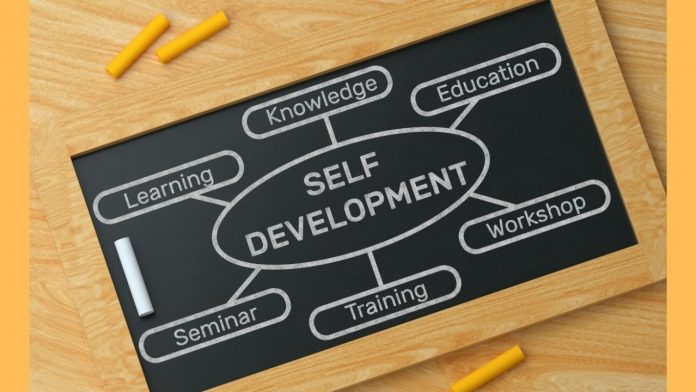Are you feeling stuck in life, unsure of what direction to take or how to improve yourself? Guided counselling may be just what you need to kickstart your personal growth and development journey.
Working with a trained counsellor can help you identify your strengths and weaknesses, set realistic goals, and develop strategies for positive change.
Guided counselling is a collaborative process that empowers you to take charge of your life and make meaningful progress towards your goals.
Whether you’re struggling with relationship issues, career challenges, or simply want to become a better version of yourself, counselling can provide you with the support and guidance you need to achieve greater self-awareness and emotional intelligence.
In this article, we’ll explore the benefits of guided counselling and how it can help you unlock your full potential.

Contents
Understanding the Benefits of Guided Counselling
You’ll be amazed at the benefits of guided counselling for self-improvement, so don’t hesitate to give it a try!
Guided counselling provides a safe and supportive space for you to explore your thoughts, feelings, and behaviors. You’ll gain a deeper understanding of yourself, your patterns, and your triggers, which can help you make positive changes in your life.
With the help of a trained counsellor, you’ll learn effective coping strategies, problem-solving skills, and communication techniques to improve your relationships and overall well-being. Moreover, guided counselling can help you develop a growth mindset.
Rather than being stuck in a fixed mindset, where you believe that your abilities and intelligence are fixed traits, you’ll learn to embrace a growth mindset, where you believe that you can improve and develop through your efforts and experiences.
This shift in mindset can open up new possibilities and opportunities for personal growth and development. You’ll become more resilient, adaptable, and confident in your ability to learn and grow.
So, if you’re ready to take the first step towards a better you, guided counselling is a great place to start!
Identifying Your Strengths and Weaknesses
Identifying your strengths and weaknesses can be a valuable exercise in self-awareness. Take some time to reflect on your personal and professional life and write down the areas where you excel and the areas where you could use some improvement.
Your strengths could be anything from being a good listener, having strong leadership skills, or being creative. Your weaknesses could be anything from procrastination, poor time management, or difficulty with public speaking.
Once you’ve identified your strengths and weaknesses, it’s important to set goals to improve in areas where you may be lacking. For example, if you struggle with public speaking, you could set a goal to attend a public speaking workshop or practice speaking in front of a small group of friends.
By acknowledging your weaknesses and actively working to improve them, you’ll not only boost your self-confidence but also become a more well-rounded individual. Remember that self-improvement is a journey, not a destination, so be patient and consistent in your efforts.
Setting Realistic Goals for Personal Development
Once you’ve taken the time to reflect on your strengths and weaknesses, it’s important to set achievable goals that will help you make progress in areas where you want to improve.
It’s important to remember that setting goals is not about perfection, but rather about making progress towards becoming the best version of yourself.
Start by identifying specific areas where you want to improve, such as communication skills or time management, and then set realistic goals that will help you achieve your desired outcome.
When setting goals, it’s important to make them specific, measurable, achievable, relevant, and time-bound. This means that you should have a clear idea of what you want to achieve, be able to track your progress, ensure that the goal is realistic and relevant to your overall personal development, and set a deadline for achieving it.
By setting goals that are achievable and relevant to your personal growth and development, you’ll be able to make progress and see positive changes in your life.
Remember to celebrate your achievements along the way, and adjust your goals as needed to continue moving forward.
Developing Strategies for Positive Change
To make progress towards positive change, it’s important to strategize and find ways to incorporate new habits and behaviors into your daily routine.
One effective strategy is to start small and gradually build up. For example, if you want to incorporate exercise into your routine, start with a 10-minute walk each day and gradually increase your time and intensity. This way, you’re less likely to feel overwhelmed and more likely to stick with it.
Another strategy is to hold yourself accountable. This can be done by tracking your progress, setting reminders, or even enlisting the help of a friend or mentor.
It’s also important to acknowledge and celebrate your successes along the way, as this can help motivate you to continue on your path towards positive change. Remember, change is a process and it takes time, so be patient with yourself and keep pushing forward.
Achieving Greater Self-Awareness and Emotional Intelligence
You can achieve greater self-awareness and emotional intelligence by reflecting on your past experiences and how they’ve influenced your thoughts and behaviors.
Take some time to think about your childhood, your relationships, and your successes and failures. What patterns emerge? What triggers certain emotions or reactions in you?
By understanding the root causes of your thoughts and behaviors, you can begin to make conscious choices about how you react to different situations.
Emotional intelligence is also about being aware of your own emotions and how they impact your behavior. When you feel angry, for example, do you lash out or do you take a step back and try to understand why you’re feeling that way?
By being more self-aware, you can learn to regulate your emotions and respond to situations in a more constructive way. This can lead to better relationships, more success in your career, and a more fulfilling life overall.
Conclusion
So, you’ve embarked on a journey of personal growth and development through guided counselling. Congratulations!
As you’ve learned, this approach can help you identify your strengths and weaknesses, set realistic goals, and develop strategies for positive change. But that’s not all – you can also achieve greater self-awareness and emotional intelligence.
Through guided counselling, you’ve gained valuable insights into your own thoughts, feelings, and behaviors. You’ve learned to recognize patterns and triggers, and you’ve developed tools to cope with stress and challenges.
With continued practice and support, you can continue to grow and improve, becoming the best version of yourself. Keep up the good work!
Read more: For more information please visit our website Randy TV



